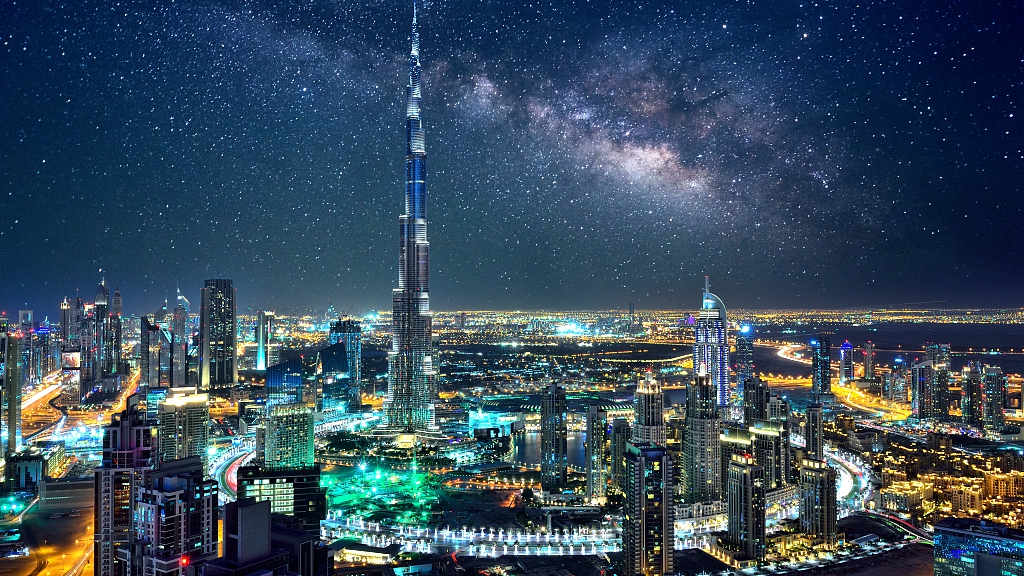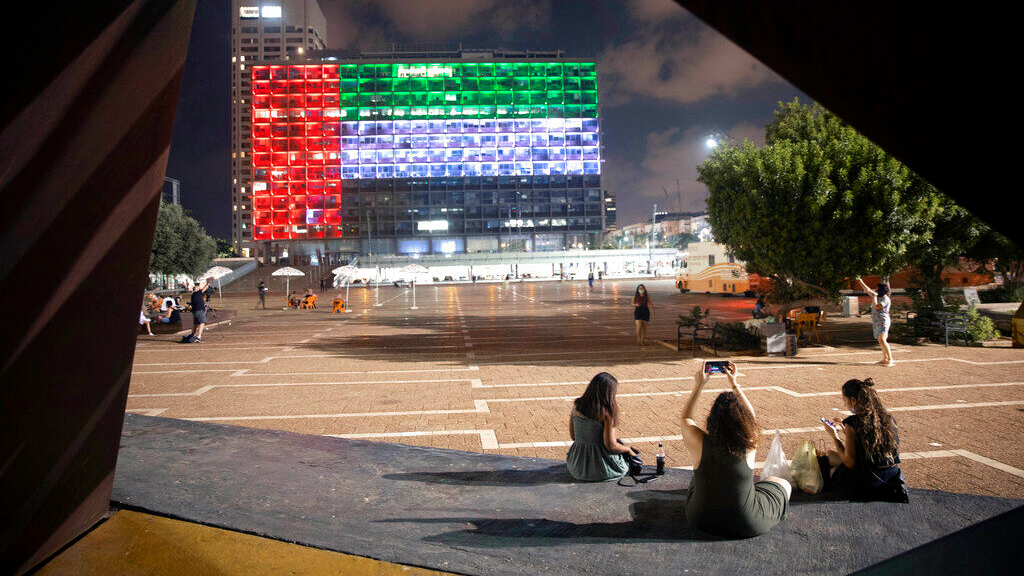
Editor's note: Freddie Reidy is a freelance writer based in London. He studied history and history of art at the University of Kent, Canterbury, specializing in Russian history and international politics. The article reflects the author's opinions, and not necessarily the views of CGTN.
The landmark commitment to normalizing relations between the United Arab Emirates and Israel is a significant moment for both nations and one which could see the UAE and Dubai, in particular, take a step further toward the premier division of global financial centers. What are the challenges for Dubai though as it seeks to maintain its upward trajectory?
Dubai has been one of the most significant growth stories of the last century. In the mid-20th century, the Emirate state was little more than a small domestic harbor with no major port or airport and a population of just 20,000. Today, Dubai is home to the world's busiest passenger airport and the Middle East's largest port capable of accommodating 22 million shipping containers.
In many ways, the Emirate state has looked to model itself on the great entrepots of East Asia, Hong Kong and Singapore. The move was a shrewd one, as unlike many of its neighbors, Dubai is not rich in hydrocarbons and thus has had to fashion an alternative economy, capitalizing on its geographic location.
The Dubai economy does face significant challenges though. The COVID-19 pandemic has exerted negative impacts on Dubai's GDP. The initial shutdown in global manufacture also led to a drop in shipping activity. Furthermore, while not directly impacted by a fall in oil prices, the dip does lead to diminished disposable income of the many frequent visitors from around the region and wider world.
The agreement with Israel therefore represents a much needed step to unlocking a hitherto, untapped market. Tel Aviv is also the region's second largest financial hub behind Dubai, so there is great potential for mutual prosperity complemented by Israel's booming high-tech economy. The move also sends a signal globally, that Dubai is open for business and is not hampered by the historic tensions of its neighbors.

Tel Aviv City Hall is lit up with the flags of the United Arab Emirates and Israel as the countries announced they would be establishing full diplomatic ties, in Tel Aviv, Israel, August 13, 2020. /AP
Tel Aviv City Hall is lit up with the flags of the United Arab Emirates and Israel as the countries announced they would be establishing full diplomatic ties, in Tel Aviv, Israel, August 13, 2020. /AP
Dubai's march toward the upper echelons of the global financial center rankings is directed from the Dubai International Financial Center (DIFC), a site of over one hundred acres, representing a free zone. Economic stability is built upon the success of the DIFC, however there is a major issue with fiscal transparency. Making a move toward greater transparency and committing to healing old wounds as with Israel certainly aid the facilitation of credit lines from European and Western countries.
Dubai can also capitalize on its rival, Saudi Arabia's cooling relationship with the U.S. in the aftermath of the murder of Jamal Khashoggi and other diplomatic spats. If Dubai did decide to move toward a more internationally recognized standard of transparency, major deals could be struck at its neighbor's expense. The prospect of such carrots from the U.S. and Europe could also help allay the short-term risk of a more hostile policy towards illicit finance.
There is always opportunity in a crisis, indeed it is Dubai's stability when surrounded by regional chaos, that has led it to become a haven for foreign investment. If the state were to pursue a policy of greater vetting and transparency, it could find itself the ideal hub for increased Western investment but also of Eastern. As China's Belt and Road Initiative begins to bear fruit, such a confluence would bring prosperity to the region and mark the apex of Dubai's meteoric rise.
(If you want to contribute and have specific expertise, please contact us at opinions@cgtn.com.)